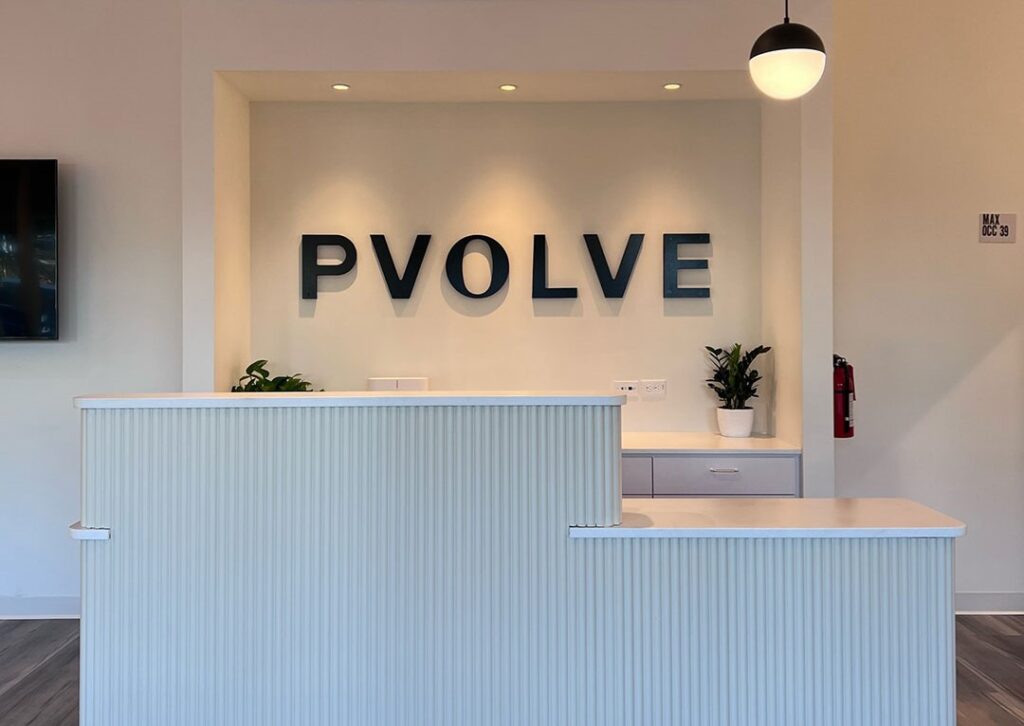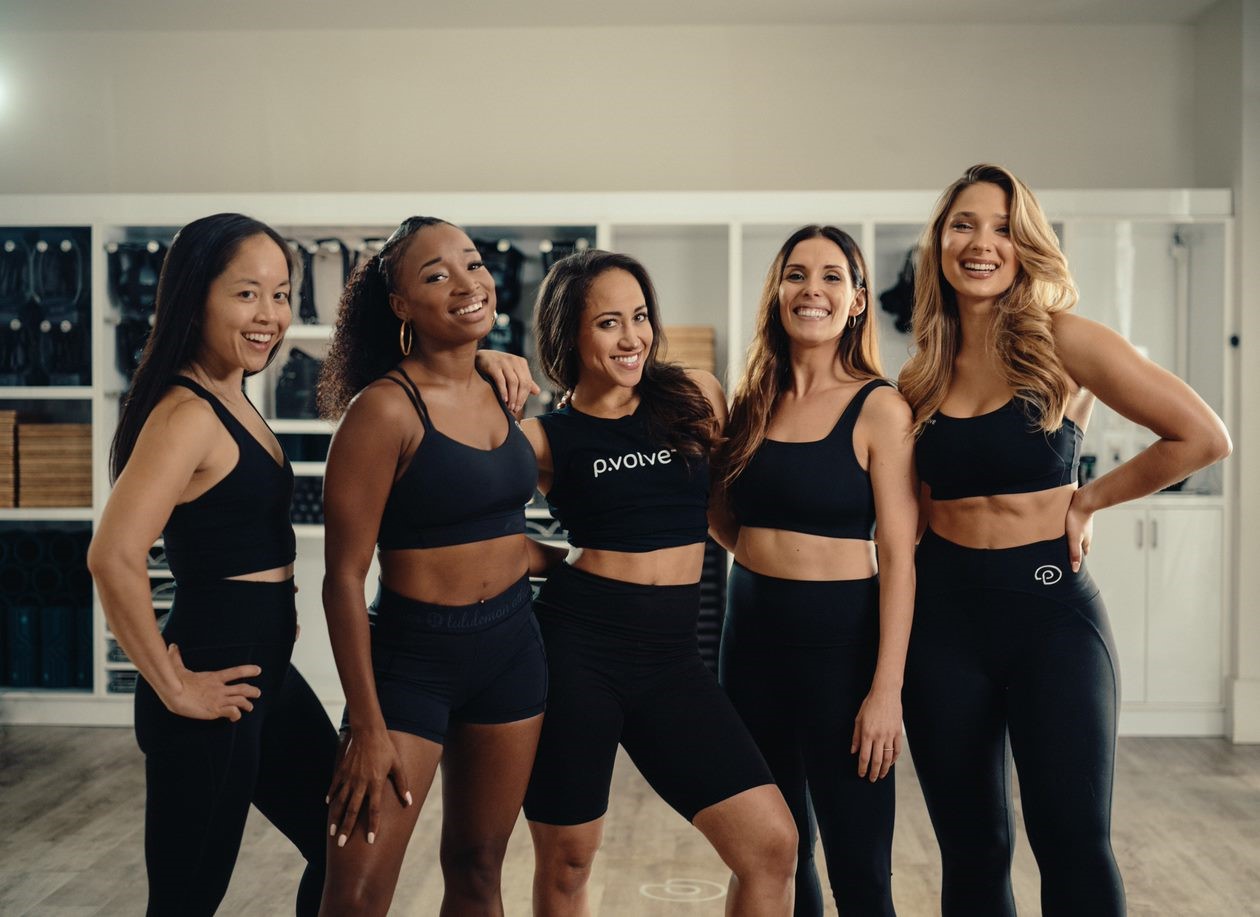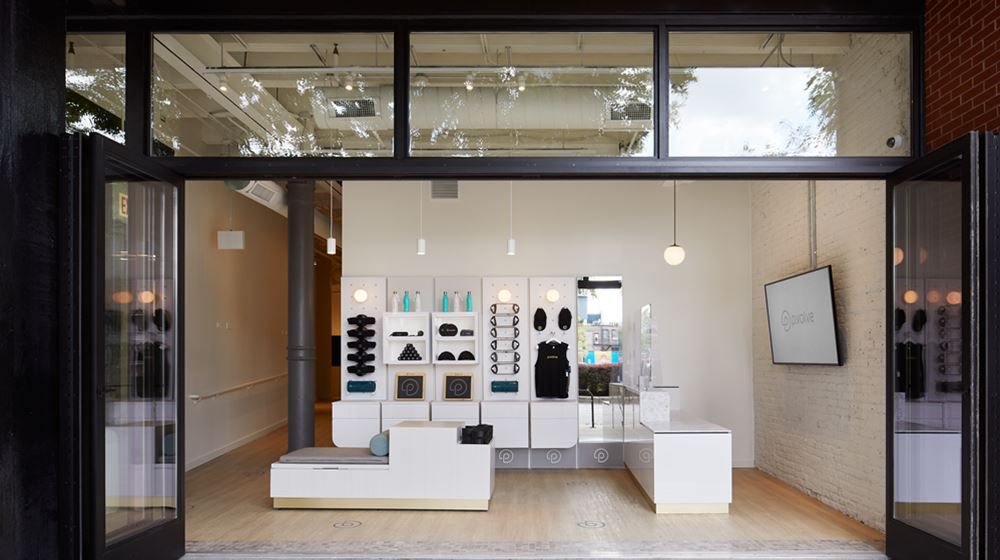Fitness Insights
Top Fitness Franchise Opportunities for 2025
If you are looking for a way to enter the fast-growing fitness industry, owning a franchise can be one of the most strategic moves. The best fitness franchise opportunities offer proven business models, established brand recognition, and reliable support, making them less risky and more scalable than starting from scratch.
Whether you’re interested in traditional gyms, boutique studios, or hybrid fitness concepts, there’s a model to match your goals, budget, and lifestyle. This guide will help you compare different types of franchises, understand what each model requires, and explore why brands like Pvolve are gaining attention for their innovation and strong support systems. If you are ready to turn your passion for fitness into a successful business, the right opportunity is waiting.
Compare Fitness Franchise Opportunities
Fitness franchises come in many shapes and sizes, from large-scale gyms to focused boutique studios. The right model depends on your goals, budget, location, and management style. Below, we break down the most common fitness franchise types so you can decide which one fits your vision.
Traditional Gyms
These full-service fitness centers offer equipment for weight training and cardio, plus amenities like group classes, pools, and saunas. They appeal to a broad audience and often generate high revenue due to volume.
- Best for: Owners with access to large real estate and startup capital
- Pros: Broad customer base, multiple revenue streams
- Cons: High overhead, complex operations
Boutique Studios
Boutique studios focus on a single modality like Yoga, Barre, Pilates, or Cycling. These spaces are smaller, community-driven, and known for offering a more personalized member experience.
- Best for: Owners interested in niche markets and tighter communities
- Pros: Loyal clients, lower operating costs
- Cons: Narrower audience, competitive in urban areas
Personal Training Studios
These studios offer private or small-group training, often emphasizing coaching and individualized programs. They typically require less space and can be customized to various fitness specialties.
- Best for: Fitness professionals or first-time owners with training experience
- Pros: Low overhead, personalized service
- Cons: Limited scalability, requires expert staff
Specialized Studios
Focused on one discipline like martial arts, boxing, or functional training, these studios create a unique experience and build a strong brand identity with loyal clientele.
- Best for: Passionate owners with experience in a specific fitness method
- Pros: Differentiation in a crowded market
- Cons: Smaller market size, specialized staffing needs
Hybrid Studio Models
Hybrid studios combine multiple elements, such as strength, cardio, and recovery. Well-known examples, such as Orangetheory and Pvolve, utilize class formats and performance tracking to drive engagement.
- Best for: Entrepreneurs seeking an innovative, tech-enabled concept
- Pros: Broad appeal, strong brand identity, recurring revenue
- Cons: Higher initial costs, more complex systems to manage
Each model offers a different path to success. Your ideal choice depends on your comfort level with management, available capital, and the type of fitness experience you want to deliver.
Top Fitness Franchise Brands to Know
With hundreds of options out there, it helps to focus on the top-performing fitness franchise brands. These companies stand out for their brand recognition, growth potential, and support for franchisees. Below is a selection of well-established and fast-growing fitness franchises to consider.
Pvolve
A science-led, low-impact training method that combines functional movement with resistance-based equipment. The format is rooted in physical therapy principles, appealing to a wide range of fitness levels.
- Founded: 2017
- Locations: Rapidly growing across North America
- Investment Range: $350,000 – $700,000 (typical range based on location and size)
- Best For: Investors seeking a modern, boutique-meets-clinical fitness concept with strong wellness appeal
Orangetheory Fitness
A group-based HIIT studio that uses heart-rate monitoring to personalize training. Known for its science-backed workouts and strong community culture.
- Founded: 2010
- Locations: 1,500+
- Investment Range: $488,000 – $994,000
- Best For: Owners seeking a proven, tech-enabled group training concept
Anytime Fitness
A 24/7 gym model with global brand power. Designed for convenience, it uses a lean staffing model and appeals to all fitness levels.
- Founded: 2002
- Locations: 5,000+
- Investment Range: $389,000 – $970,000
- Best For: Entrepreneurs seeking flexibility, scalability, and a recognizable brand
F45 Training
Offers 45-minute team workouts that combine functional strength and cardio. It’s community-driven and known for its rapid international expansion.
- Founded: 2014
- Locations: 3,000+
- Investment Range: $315,000 – $565,000
- Best For: Owners who want a fast-paced, results-oriented group format
Planet Fitness
A big-box gym franchise focused on affordability and a judgment-free environment. One of the largest fitness franchises globally.
- Founded: 1992
- Locations: 2,500+
- Investment Range: $969,000 – $4.2M
- Best For: Experienced investors targeting large-scale operations
Burn Boot Camp
A high-energy, community-focused boot camp model designed primarily for women. Offers 45-minute group workouts with flexible scheduling.
- Founded: 2012
- Locations: 350+
- Investment Range: $284,000 – $715,000
- Best For: Owners passionate about transformation and personal empowerment
9Round
A kickboxing-themed circuit gym that delivers full-body workouts in just 30 minutes. No class times, and members rotate through nine stations.
- Founded: 2008
- Locations: 800+
- Investment Range: $130,000 – $390,000
- Best For: Owners looking for a low-investment model with a unique niche
Snap Fitness
A 24/7 access gym offering flexibility and a low-friction user experience. Focuses on affordability and streamlined operations.
- Founded: 2003
- Locations: 2,000+
- Investment Range: $147,000 – $455,000
- Best For: Investors who want a simplified, tech-forward fitness concept
StretchLab
Specializes in one-on-one assisted stretching services. Serves a growing market focused on flexibility, injury prevention, and recovery.
- Founded: 2015
- Locations: 900+
- Investment Range: $156,000 – $386,000
- Best For: Investors interested in the wellness niche with less operational complexity
Pvolve Franchisee Success Stories
Behind every thriving fitness franchise is a story — or several — of real people turning passion into purpose. Pvolve franchisees come from all walks of life, but they share a common belief: this brand delivers something truly different in the fitness world. Here’s what some of them had to say about their journey.
“Pvolve is changing the conversation around holistic wellness. Our workouts fill a real need in fitness, marrying both intense toning with functional movements that help restore and support the body so you can feel incredible both inside and out.”
— Kirstin K., San Diego Franchise Owner
“After more than two years of intensive research and analysis on potential franchise opportunities in the fitness space, Pvolve was by far our top choice.”
— Kristin S., Carlsbad Studio Manager & Co-Owner
“Fitness is a central part of our lives, and being able to start our own business with such an amazing brand and a hugely dedicated following is a dream come true.”
— Kristin S., Carlsbad Studio Manager & Co-Owner
“We reviewed a lot of brands, but nothing stood out to us. Then one day, Cynthia said, ‘I really wish Pvolve would franchise.’ A few minutes later, we checked the website — and they had just opened franchising. It felt meant to be.”
— Ben & Cynthia H., Nashville Franchise Owners
“I became fully addicted to the program. When I got the email about franchising, the stars aligned — I knew this was exactly what I wanted to do.”
— Kirstin & John K., San Diego Franchise Owners
“After a long career in the insurance business, I wanted my next chapter to bring wellness to people — and I believe I’ve found it in Pvolve. It can do good for everyone, and I want to shout it from the mountain tops.”
— Lucille & Tom C., Victoria Franchise Owners
These stories highlight the unique connection franchisees have with Pvolve — not just as a business opportunity, but as a mission. From career changers to wellness lovers, many found that Pvolve aligned with their purpose in a way no other brand could.
Fitness Franchise Investment Breakdown
Fitness franchise costs vary widely depending on the brand, business model, and location. Some models can be launched for under $150,000, while others may require investments over $1 million. Below is a breakdown of the main financial elements you should expect to encounter.
Initial Franchise Fee
This upfront fee grants you the right to use the brand name, business systems, and receive franchisor support.
Typical range: $20,000 to $60,000
Startup Costs
Startup expenses include build-out, equipment, signage, lease deposits, technology, and marketing. Here’s a general cost range by model:
- Low-investment gym franchises: $90,000 – $250,000
- Mid-range boutique studios: $250,000 – $700,000
- Big-box gyms and large spaces: $1 million – $4 million+
Your final cost will vary based on location, size, lease terms, and equipment needs.
Ongoing Royalties and Fees
Franchises typically charge recurring fees tied to gross sales. Expect:
- Royalty fees: 5%–7% of revenue
- Marketing fees: 1%–3% of revenue
- Technology or software fees: Flat monthly rates may apply
These fees fund continued brand growth, advertising, and system improvements.
Financial Requirements
Most franchisors require minimum financial qualifications to ensure franchisees can support the business through its early stages.
- Liquid capital required: $100,000 – $350,000
- Net worth required: $300,000 – $1 million
These benchmarks vary depending on the brand and business model.
Funding Options
Not all franchisees self-fund. Common financing methods include:
- SBA loans
- Equipment financing
- Franchise lenders
- Friends and family investment
- 401(k) business funding (Rollover for Business Startups)
Some franchisors also offer referrals to preferred lenders.
Pvolve’s Mid-Range Investment Profile
Opening a Pvolve studio typically requires an investment between $350,000 and $700,000, depending on location and studio size.
The boutique-hybrid model keeps overhead lower with streamlined operations and lean staffing.
Positioned at the intersection of fitness and wellness, Pvolve offers strong brand support and long-term growth potential for franchisees.
How to Choose the Right Franchise for You
With so many fitness franchise opportunities available, choosing the right one comes down to alignment between your goals, resources, and personal style.
Use the following considerations to make a confident, informed decision.
Define Your Budget and Risk Tolerance
Franchise costs can range from under $100K to several million dollars. Think about how much capital you can invest, and how much risk you’re comfortable taking.
- Low investment, lower risk: Personal training or circuit-based concepts (e.g., 9Round)
- Mid-range, balanced model: Boutique and hybrid studios (e.g., Pvolve)
- High investment, high return potential: Large gyms with real estate, equipment, and staff (e.g., Planet Fitness)
Decide How Involved You Want to Be
Some franchise models require hands-on daily management, while others are better suited for semi-absentee owners.
Ask yourself:
- Do I want to coach, train, or be on-site every day?
- Or do I prefer to hire a team and oversee operations?
If you enjoy the daily grind and community engagement, owner-operated models are ideal. If you plan to scale or stay behind the scenes, look for brands with manager-run options.
Match the Model to Your Local Market
Your franchise should fit the demographics and fitness culture of your area.
- Urban areas: Boutique, high-intensity concepts often perform well
- Suburbs or family-focused neighborhoods: Boot camps, hybrid models, and 24/7 gyms thrive
- Wellness-focused communities: Low-impact, functional fitness (like Pvolve or StretchLab) aligns well
Understanding your target audience helps you choose a model that meets real demand — not just industry trends.
Evaluate Brand Culture and Support
Not all franchises offer the same level of training, tools, or values. Choose a brand that matches your vision for ownership.
Look for franchisors that provide:
- Initial and ongoing training
- Marketing, tech, and operational support
- A mission that aligns with your personal values
Speak with existing franchisees to gauge how well the brand delivers on its promises.
Align the Franchise With Your Future Goals
Are you building a long-term business or trying out a new chapter in your career? Do you want to own one location or several?
Some franchises offer multi-unit territory options, while others are designed for single-unit ownership. Clarify your goals now so you can choose a franchise that grows with you.
The Franchise Buying Process, Step-by-Step
Once you’ve identified a few promising fitness franchise opportunities, the next step is turning interest into action. Here’s a clear breakdown of what the process typically looks like from first contact to launch.
1. Define Your Goals
Clarify what you’re hoping to achieve. Are you building a fitness career, seeking a scalable business, or generating a semi-passive income stream?
Your personal goals will determine which franchise model is the best fit.
2. Research and Compare
Use trusted directories, brand websites, and articles like this one to evaluate different options.
Create a shortlist of 2–3 franchises that align with your values, location, and budget.
3. Request Information
Reach out to the franchisors on your list. Most will schedule a discovery call and provide a franchise information packet.
Ask about available territories, timeline, support structure, and expected financials.
4. Review the Franchise Disclosure Document (FDD)
The FDD is a legal document that outlines everything you need to know — from fees and royalties to legal history and earnings data.
Take time to review it thoroughly. Consider hiring a franchise attorney to walk you through it.
5. Talk to Other Franchisees
Reach out to existing owners to get the real story. Ask about startup experience, franchisor support, and day-to-day operations.
This is one of the most honest sources of insight you’ll find.
6. Explore Financing Options
If you’re not self-funding, look into:
- SBA loans
- Franchise-specific lenders
- Equipment financing
- Rollover for Business Startups (ROBS)
Some franchisors offer introductions to preferred lenders.
7. Secure Your Territory and Sign the Agreement
Once you’re confident, lock in your territory and finalize the franchise agreement.
This step officially makes you a franchisee.
8. Complete Training and Launch
You’ll go through the franchisor’s onboarding process, which typically includes:
- Site selection and build-out
- Staff training
- Pre-opening marketing
- Operational setup
From here, you’re ready to open your doors and welcome your first members.
Open a Fitness Franchise With Pvolve
Pvolve offers a fitness franchise opportunity that stands out for its Clinically Proven method, wellness-forward approach, and efficient studio model. With growing demand for low-impact, functional training, Pvolve is uniquely positioned in the modern fitness market.
As a franchisee, you’ll gain:
- A strong support system for launch and operations
- A loyal, wellness-minded member base
- A scalable model with lower overhead than traditional gyms
If you’re ready to build a business with purpose, let’s talk. Contact our team to learn more about opening a Pvolve studio in your area.



